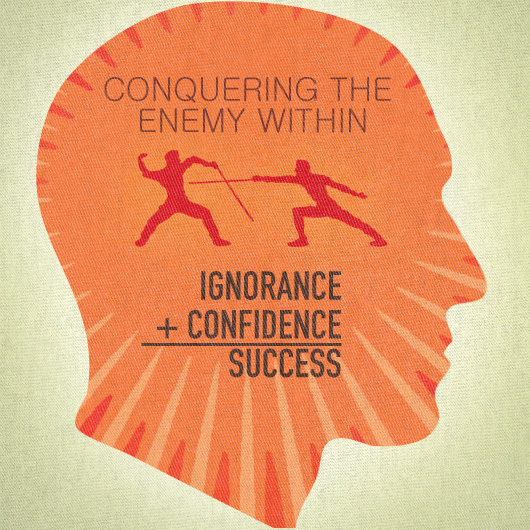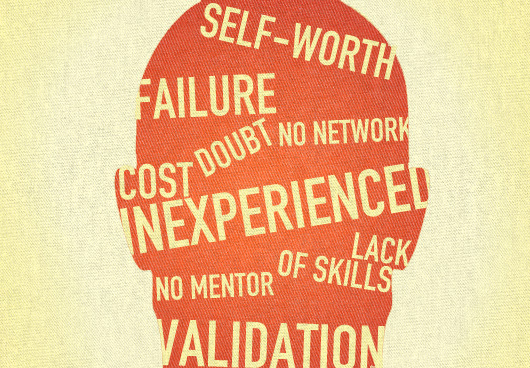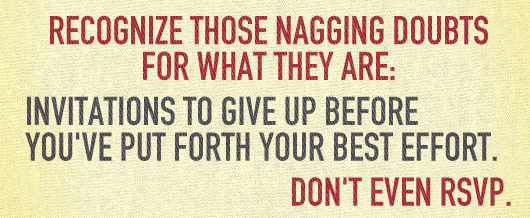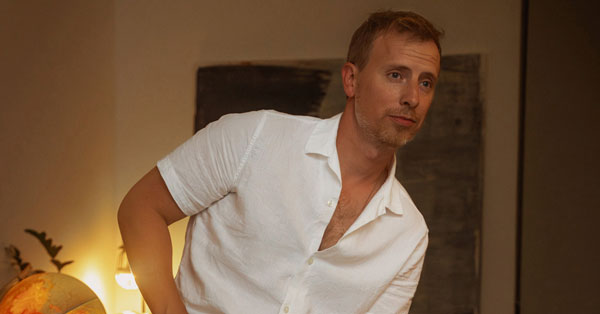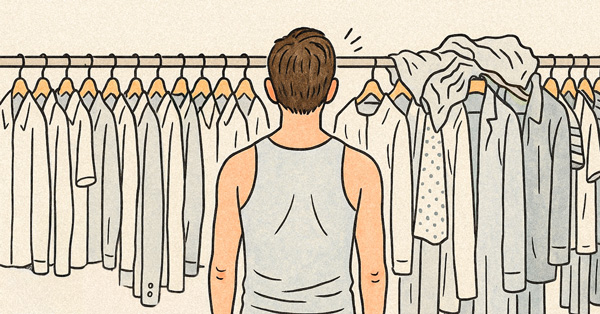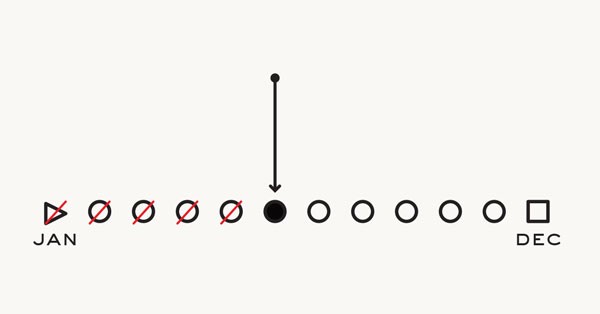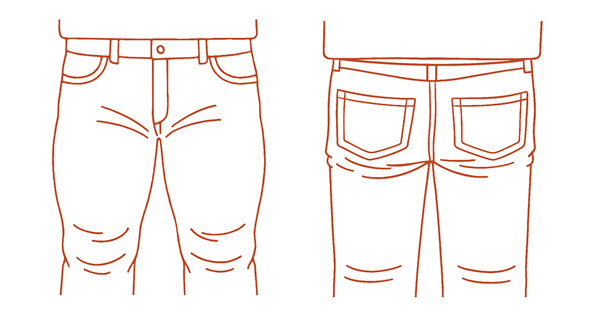To succeed in life, you need two things: ignorance and confidence, or so says Mark Twain. Given that wit and satire are Twain’s claim to fame, it goes without saying that this oft-repeated quotation is laced with more than a little irony. But if we take that word “ignorance” literally, then his advice is actually far less tongue-in-cheek than we might assume. And perhaps even more useful.
How can that be? Why would we bother spending 16+ years gaining an education if ignorance is the ticket to success? It’s because at a certain point, what we know–or what we think we know–begins working against us.
Here’s what you need to do about it:
Self-defeating Behavior: What It Is and Why We Do It
We commonly view the corporate world, academia, and the dating game as highly competitive. And they are. For each coveted prize—a managerial position, a fellowship, a mate—there are exponentially more candidates than winners. In spite of that, the greatest obstacle to success isn't outward competition. It's inward doubt. For many of us, this doubt is so pervasive that it causes us to sabotage our selves.
To some extent, we all have a tendency to self-defeat. It's human nature. In fact, it's one of the key ways we cope with failure (which, by the way, is a frequent pit stop on the way to success). Self-sabotage actually protects us from devastation. Actually, self-sabotage may not be the best word to describe the concept. In it’s intended form, it’s more like when a skateboarder “bails.”
To the casual onlooker, a skater’s failed stunt may look like an unmitigated trainwreck. But experienced skaters will tell you that the art of failing at a trick is just as practiced and important as landing it successfully. Throughout the execution of a trick, there are a number of opportunities to bail if the skater feels like he or she is losing control. Taking those opportunities when it’s prudent is a key part of not breaking your neck while learning a new trick. It allows you to walk away (relatively) unscathed so you can try again and again, rather than spending the rest of the summer in a body cast.
When we make an attempt at a new challenge, our mind’s have a similar mechanism for bailing called self-defeating behavior. But rather than protecting your fragile bones, self-defeating behavior is designed to protect your self-esteem.
Whenever we are met with rejection, we can rationalize it in one of two ways: (A) we can conclude that our skills or personal worth are insufficient or (B) we can peg it to an invented excuse. Option B is more palatable in almost every case, since it takes the heat off of what's truly important to us. Instead of saying, “I didn't get the part because I'm not a good singer,” we can say, “The acoustics in the room were bad,” or “My audition was too close to lunch time,” or “My accompanist was drunk.” In the short term, these excuses are a decent pep talk. They mirror what our friends tell us later at the bar when trying to buck us up and reassure us that we have what it takes. They allow us to cut our losses and move on when necessary. And most importantly, these excuses preserve our optimism long enough to try again.
But there's a dark side to this coping mechanism. If our fear of rejection grows too strong, we begin generating these face-saving excuses before we fail. We walk into the situation primed for failure, with dozens of excuses already lined up: “I'm not going to get the job because I look too young,” or “She won't like me because I'm unemployed,” or “My voice is still shot from the cold I had last week.” With so much inward negativity already percolating, all it takes is just a tiny bit of external resistance to break our resolve.
As soon as the situation appears uncertain, we bail.
The Invention of Obstacles
What's this all about? Since when did we become such mopey, self-flagellating downers? Why do we seem addicted to this self-inflicted abuse?
For most of us, it's not the abuse that we're hooked on. What we really crave is validation. This is especially true for young folks, just out of college. You've aced all the courses, you've written all the essays, you've been told by the speaker at your commencement that you are the hope and brilliance that will shine a light into our dark future. For four years (or more), you've been brimming with potential and promise. And now, it's time to tap it. It's time to sample the product, to see if it's matured properly, to see if it's become what we all hope it would.
That is terrifying. It’s terrifying because, absent any concrete validation from the real world, the entirety of your self-esteem has been built on an untested theory*. I call this the self-worth theory. The self-worth theory says that, based on the grades we’ve earned or the praise we’ve received from our parents, we are special, extraordinary, exemplary. This theory makes us feel strong and smart when our big debut is still waiting in the wings. But things get scary when that theory starts inching toward the cold light of day. This is because you believe that there are two possible outcomes to putting your self-worth theory to the test: you could receive validation (epic win!) or you could be debunked, effectively deflating the structural bubble that your ego has rested upon for most of your life.
It's a bit like getting down on one knee and popping the Big Question. It's the only way to get the Big Answer, but at the same time, we fear that the Big Answer may be: “No.” So we hone and procrastinate. We waffle and backpedal. We circle the runway, refusing to land for fear of crashing and burning.
That's what we are doing when we self-defeat. We are putting off the Big Question. And the truly twisted thing about all this is that giving up actually feels rewarding. It seemingly affirms the validity of your invented obstacles. But more importantly, it allows you to avoid having your self-worth theory put to the test. It’s like having the final exam pushed back a month.
The closer to the moment of truth we get, the harder our engine of self-defeat works. We turn into veritable excuse factories, churning out excuses that allow ourselves to give up one after the other. And that’s where conquering self-defeating behavior should begin.
Turn It Off: Shutting Down the Excusinator Inside
Invented obstacles that seduce your resolve toward resignation are hard to shake once they get inside your head. That’s why the best approach is to prevent them from happening in the first place. So, where do these self-defeat enabling excuses stem from? Oftentimes, it's from past experiences. We've stepped up to the plate and painfully struck out again and again. Even rats can recognize a pattern. And like rats, we adjust our behavior accordingly. The longer the ghost of past failure haunts you, the more insidious and persistent its presence becomes. This makes overcoming your gun shyness particularly difficult. The best strategy is to act before you’ve had time to dwell on your past failures. Aside from obvious lessons learned (don’t order extra bean chili on the first date, don’t call an executive by his first name, don’t get black out drunk the day before tryouts), divorce yourself from whatever has happened before and act as if this is your first attempt. As far as you are concerned, you have no track record, no batting average, no odds in this race. It’s just you, as you are, presenting yourself confidently.
It’s also important to avoid burdening yourself with negativity gleaned from others. For every ambition that has prickled up in a man or woman's chest, there are droves of people who have tried and failed before them. And many of them are extremely forthcoming about the obstacles they’ve faced. Take a five minute Google break and see if you can find advice on “starting a coffee shop” or “paying for healthcare as a freelancer” or “landing a record deal” or “publishing a novel” in the forums and blogs. Unless the author is selling an eBook, the chances of them painting a rosy picture of success are slim. This is often well-meaning. For those who have made it, they want to give a heads up about the obstacles and challenges they faced. For those who are jaded, they want to caution you away before the ordeal sucks your soul away, too. But the takeaway is often, “If they had so much trouble, I don't stand a chance.” Classic self-defeating behavior. Some of the greatest achievements were made because no one ever told the achiever that it was impossible. Make sure you don’t get the memo either.
Ignorance + Confidence
Every opportunity you pursue will involve risk. And every risky situation is fraught with uncertainty. Obsessing over the possible negative outcomes from that uncertainty feeds your self-defeating drive. By creating a laundry list of your shortcomings and disadvantages, you may feel like you are doing due diligence. But you’re not. All you are are doing is making the enemy within strong. Disarm him by becoming ignorant to that pessimistic voice of unreason. Recognize those nagging doubts for what they are: invitations to give up before you've put forth your best effort. Don't even RSVP.
Being aware of self-defeating behavior and self-defeating thoughts is 90% of conquering them. Confidence should help with the remaining 10%. What you should be confident of are the facts. Instead of obsessing over what could potentially be wrong, be confident in what you know you have done right and what you know you can do right. Remember that you studied for hours in preparation for this exam. Remember that you make people laugh and are generally likable. Remember that you feel infinite when you play violin. Remember that you know the mission and values of this company inside and out and believe in them, too.
If you can’t be confident in things like the above, then that’s where you need to be focusing your energy. You need to make those things be true before you proceed. That may seem daunting, but what’s different about these roadblocks to your success when compared to the self-defeating excuses is that these are actionable. Instead of blaming forces outside of your control, it puts the ball in your court.
Confidence vs. Hubris
When taking Mr. Twain's quote to heart, it's important not to confuse ignorance and confidence with stupidity and hubris. Ignorance, remember, is a lack of knowledge or information. Ignorance is not a quality or personality trait. It's a state of inexperience. It's square one. It's where everyone who has ever tried anything begins. Delusions of starting from anywhere but a state of ignorance is hubris (false pride). And acting on hubris is stupidity.
This may seem all very basic. But embracing ignorance can be difficult. The same part of our psyche that balks at the Big Question also recoils when faced with the reality that there is room for growth. And for mostly the same reasons.
Our untested self-worth theory tells us that we are special. And in a way, each and every one of is special (I know, I know). After all, if we didn't think we had something unique to offer, we wouldn't bother trying to share it with the world. If we didn't think we could improve upon what others had done before us, we wouldn't venture our ideas or our businesses or our art. But many of us (probably all of us at a certain point in our lives), get overexcited about that notion and start feeling (and sometimes acting) like the next messiah. That's just as much a recipe for failure as self-defeating behavior.
There’s a funny caveat to feeling as if you and your brilliance were poised to set the world on fire. Even though we may feel invincible, on some level, we know that our self-worth theory remains untested. These doubts can only be quelled by real validation. And as a new entrant into the race, you probably haven’t had a lot of concrete validation. So your psyche’s self-defense system starts kicking in, trying to protect your precious self-esteem by convincing yourself that you are exceptional and excellent in spite of meeting with occasional failures. But the worst side effect of that mechanism is that it often blinds you to opportunities to learn valuable lessons. If your rationale does too good of a job of convincing yourself that you are still a champ, then you become blind to your shortcomings. Because if these shortcomings were revealed, it may chip away at this fantastical, yet shaky self-image of perfection.
That's pretty scary. It's so scary that we both obsess over and avoid the situations that will bring us validation.
This may seem contradictory to what I said above. But it’s not. It’s the opposite side of the same coin. There needs to be a balancing act that allows you to understand your own ignorance in a productive way. Pre-validation, we tend to think in terms of all or nothing. Either you are a genius like you’ve always known, or your entire life has been a lie. That, however, is not the case. And you know it.
Remember how you felt on your last day of high school as a senior versus how you felt as your first day of college as a freshman? You went from being the biggest fish in a small pond to a minuscule plankton in a sea of unfamiliarity. Luckily, you had a wide network of resources, mentors, counselors, and guides to ease you in. If you were smart, you took advantage of it.
Now, as you emerge from your last success and embark on your next venture, it’s important to remember how it feels to be a freshman again. In spite of how much older and wiser you are, the situation will be the same. No amount of intelligence, talent, or insider information can replace experience. And when you start out, you’ll have none. Take stock of your ignorance and seek ways to unbuild it, brick by brick, just like everyone else had to.
This doesn’t mean you have to completely humble yourself by disregarding your past achievements. It means that you should recognize that there’s still a lot to learn from others. Ask questions. Investigate issues that confuse or frustrate you. Evaluate your shortcomings with objectivity and an open-mind. And in time, your theory will prove itself.
Conclusion
I’m purposefully mixing quotes and metaphors here to illustrate the two key benefits of embracing ignorance:
1. When taking a risk or pursuing an opportunity, we wrongly assume that it’s wise to dwell upon all of the forces colluding against us. But it’s not. When you act with the assumption of failure, the prophecy fulfills itself.
2. “Real knowledge is to know the extent of one’s ignorance,” per Confucius. Approach your next challenge with a beginner’s mind, even if you think you’re an expert. When you shut down your willingness to learn, you bar yourself from growth, and ultimately, success.
Take these two simple principles and apply them to your next challenge. Whether it’s approaching a stranger at a bar or launching a small business, ignorance could very well be your greatest asset.
*Footnote: Dear Science Nerds: I know that using the word “theory” when I really should be saying “hypothesis” infuriates you. But “self-worth hypothesis” just doesn’t roll of the tongue quite as well. If you live in the Pittsburgh area, I invite you to come to my house and slap me across the face if it will make you feel better. But please remove your rings (especially class and Superbowl rings) before doing so.



